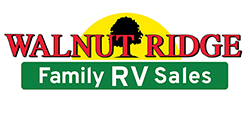Essential Tips for Safe Camping Adventures
Introduction:
Welcome to our comprehensive guide to safe camping! As outdoor enthusiasts, we understand the importance of having a worry-free camping experience. Whether you’re a seasoned camper or a novice explorer, these essential tips will help you make the most of your outdoor adventures while ensuring your safety and well-being.
Choose the right campsite:
Research and select a campsite that suits your experience level and preferences.
Look for designated campgrounds with established facilities, as they tend to offer a safer environment.
Check if the campsite has access to emergency services and is in a well-populated area.
Weather awareness:
Stay updated on the weather forecast for your camping destination.
Be prepared for sudden weather changes by packing appropriate clothing and gear, including raincoats, extra layers, and waterproof tents.
Familiarize yourself with the signs of severe weather conditions and have a backup plan in case of an emergency.
Campfire safety:
Follow local regulations and guidelines regarding campfires.
Choose a safe spot for your campfire away from flammable materials, overhanging branches, and tents.
Keep a bucket of water or a fire extinguisher nearby to quickly extinguish the fire if needed.
Wildlife precautions:
Research the wildlife species in the area and learn how to safely coexist with them.
Keep all food securely stored in sealed containers to avoid attracting animals.
Avoid approaching or feeding wildlife, as this can be dangerous for both you and the animals.
First aid preparedness:
Pack a well-stocked first aid kit with essentials such as bandages, antiseptics, pain relievers, and insect repellent.
Familiarize yourself with basic first aid techniques and know how to respond to common camping-related injuries.
Ensure that at least one member of your group has CPR and basic life-saving skills.
Navigation tools and communication:
Carry a map, compass, or GPS device to help navigate unfamiliar terrain.
Have a fully charged mobile phone with emergency numbers programmed and a backup power source.
Inform a trusted person about your camping plans, including your expected return date and location.
Safe food handling:
Store perishable food items properly in coolers with ice or refrigeration.
Use separate coolers for food and drinks to minimize cross-contamination.
Practice good hygiene by washing hands before and after handling food.
Respect nature and Leave No Trace:
Follow the principles of Leave No Trace, minimizing your impact on the environment.
Pack out all trash and waste, leaving your campsite clean and undisturbed.
Respect wildlife, vegetation, and other campers by adhering to noise regulations and staying on designated trails.
Conclusion:
By following these essential tips, you’ll be well-prepared to enjoy a safe and memorable camping experience. Remember, safety should always be a top priority, allowing you to fully immerse yourself in the beauty of nature. Happy camping!

